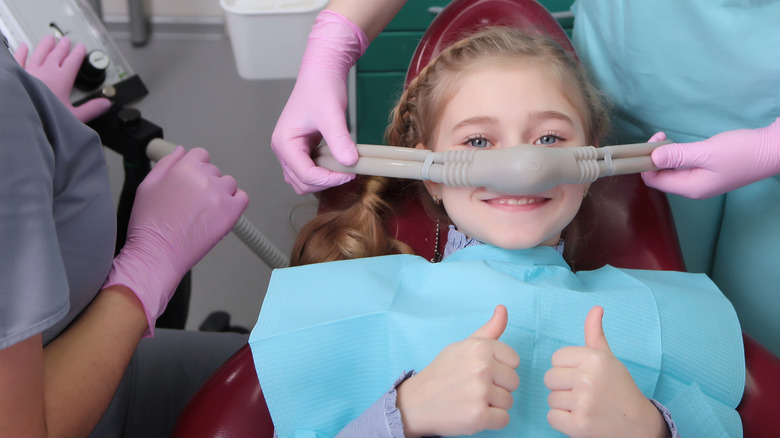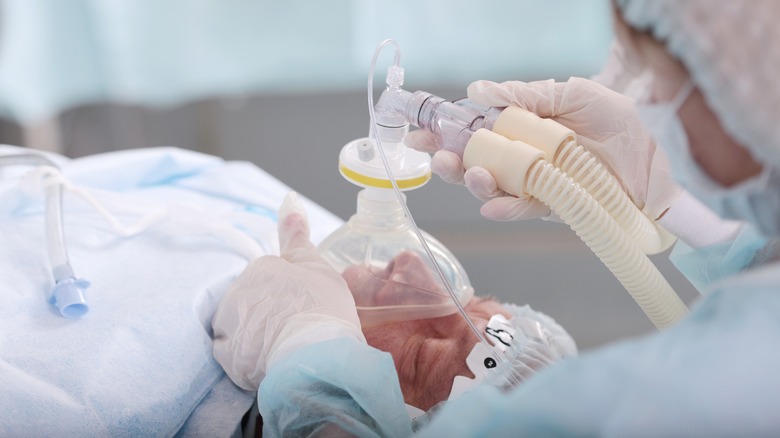Can You Be Allergic To Anesthesia?
It could be argued that anesthesia is the most important medical invention in modern medicine. Before the invention of anesthesia in 1846, surgeries were performed with little more than opium, alcohol, and a bullet to bite on, according to the University of Medicine and Health Sciences. Now, anesthesia allows doctors around the world to safely and painlessly perform necessary surgeries and other medical procedures.
Anesthesia is made from a drug called an anesthetic, which can be used in different ways, such as eye drops, lotions, and general anesthesia which numbs the entire body and makes the patient unconscious, according to the National Institute of General Medical Sciences. Interestingly, despite anesthesia having such importance in medicine for over 175 years, it was only recently that researchers started understanding how it worked, according to Medical News Today.
Anesthesia helps patients get through medical procedures without pain, but what happens if you are allergic to it? Is that even possible?
Patients can be allergic to anesthesia, but it's not common
It is possible to be allergic to anesthesia, but it's fairly rare. Roughly 1 out of every 10,000 patients who receive anesthesia will develop symptoms similar to those experienced in response to other allergens, such as a rash, hives, itchy skin, and, in more serious cases, anaphylaxis, according to Healthline. Out of every million procedures, around 100 patients have allergic reactions to anesthesia, although allergic incidents may be underreported, according to the World Allergy Organization.
Most people who are allergic to anesthesia develop symptoms when they are given general anesthesia, as opposed to local or other types of anesthesia, per Healthline. If you are concerned about possibly being allergic to anesthesia, don't worry. Anesthesiologists are trained to spot allergic reactions to anesthesia and respond quickly, according to the Hospital for Special Surgery.
If you or your family have a history of allergies or you are worried about the risks of anesthesia, speak with your healthcare provider. The Hospital for Special Surgery notes that if you have any allergies, your anesthesiologist may be able to provide anesthesia in ways that don't utilize drugs that may have triggered reactions in the past.


